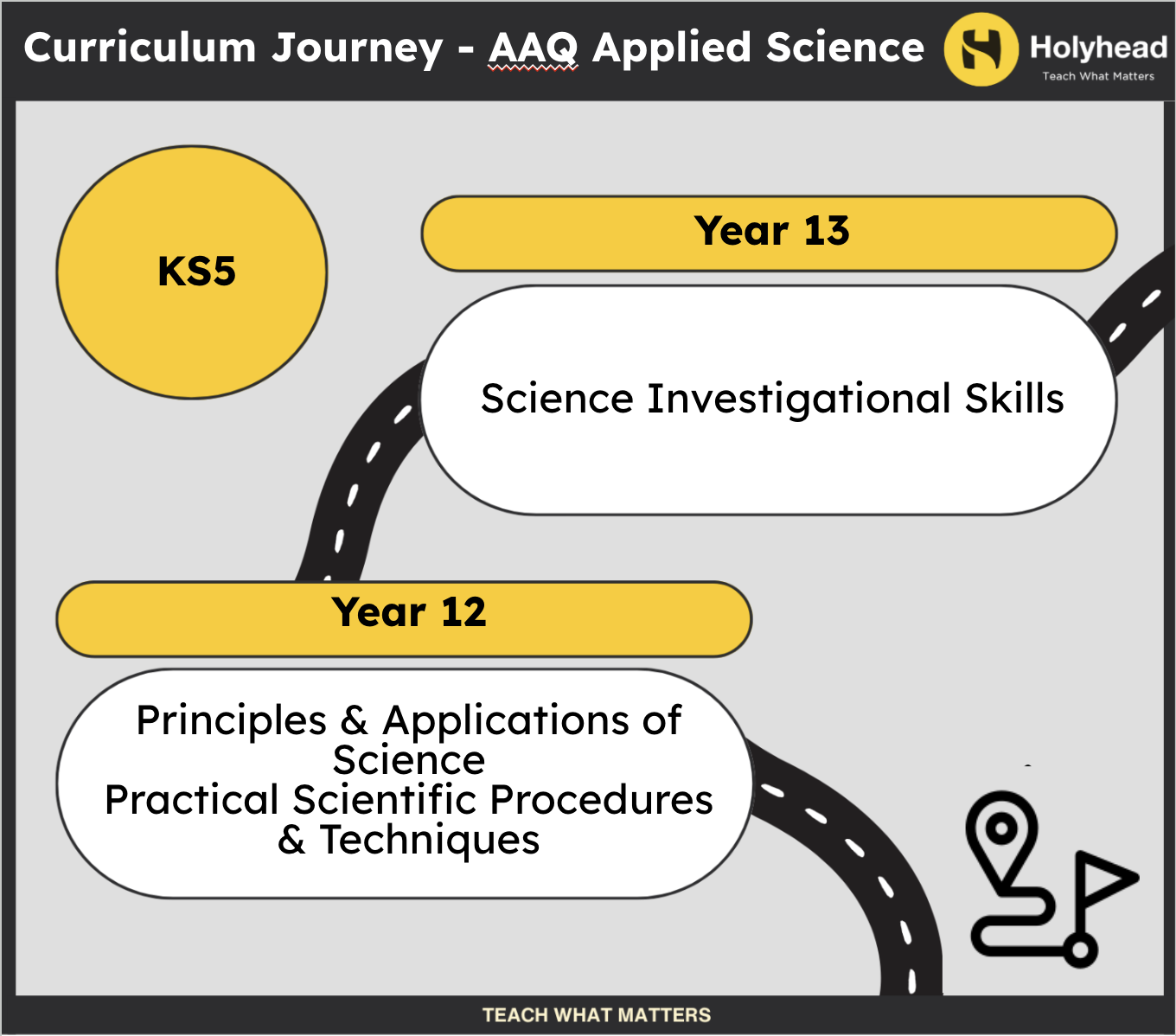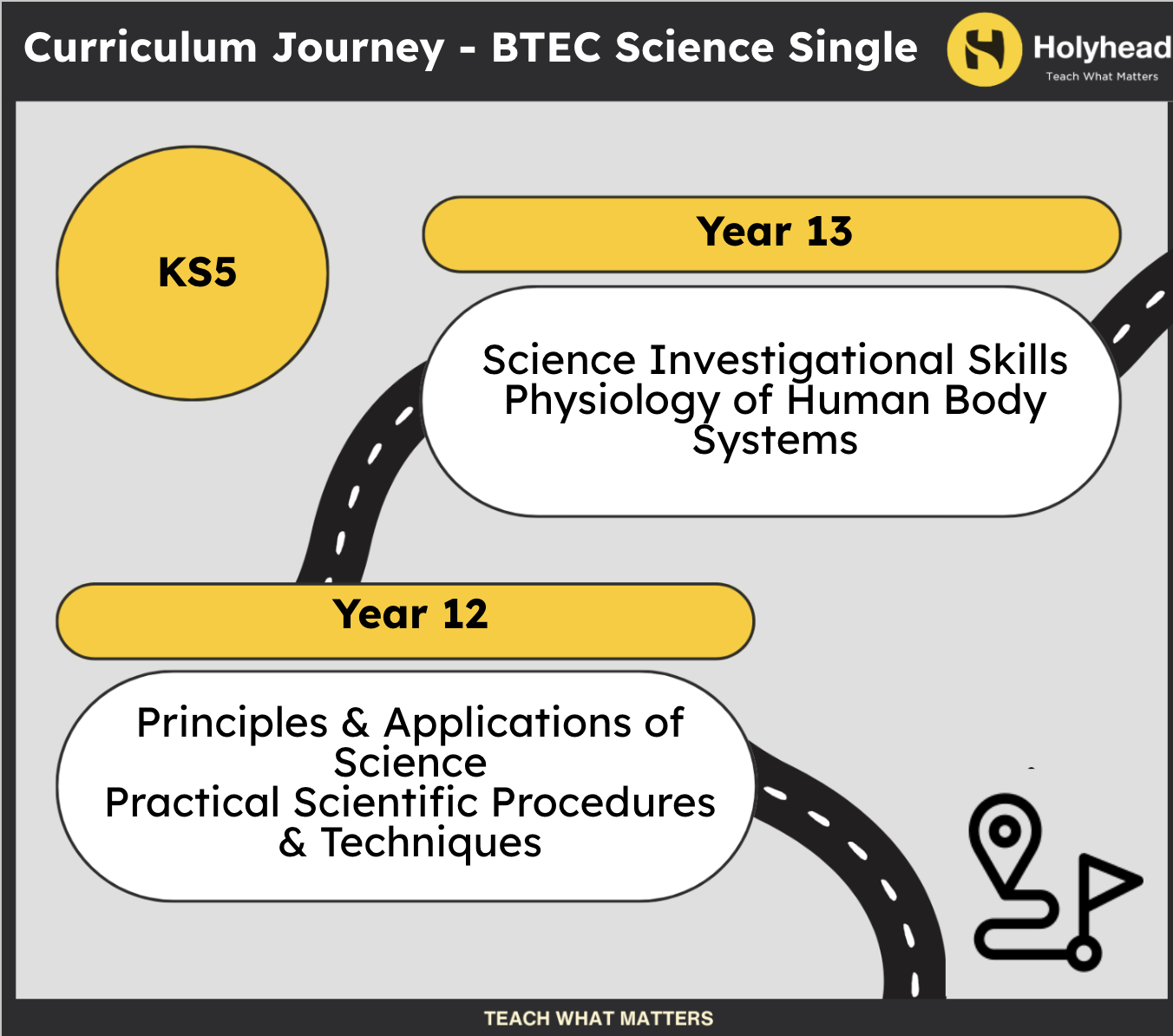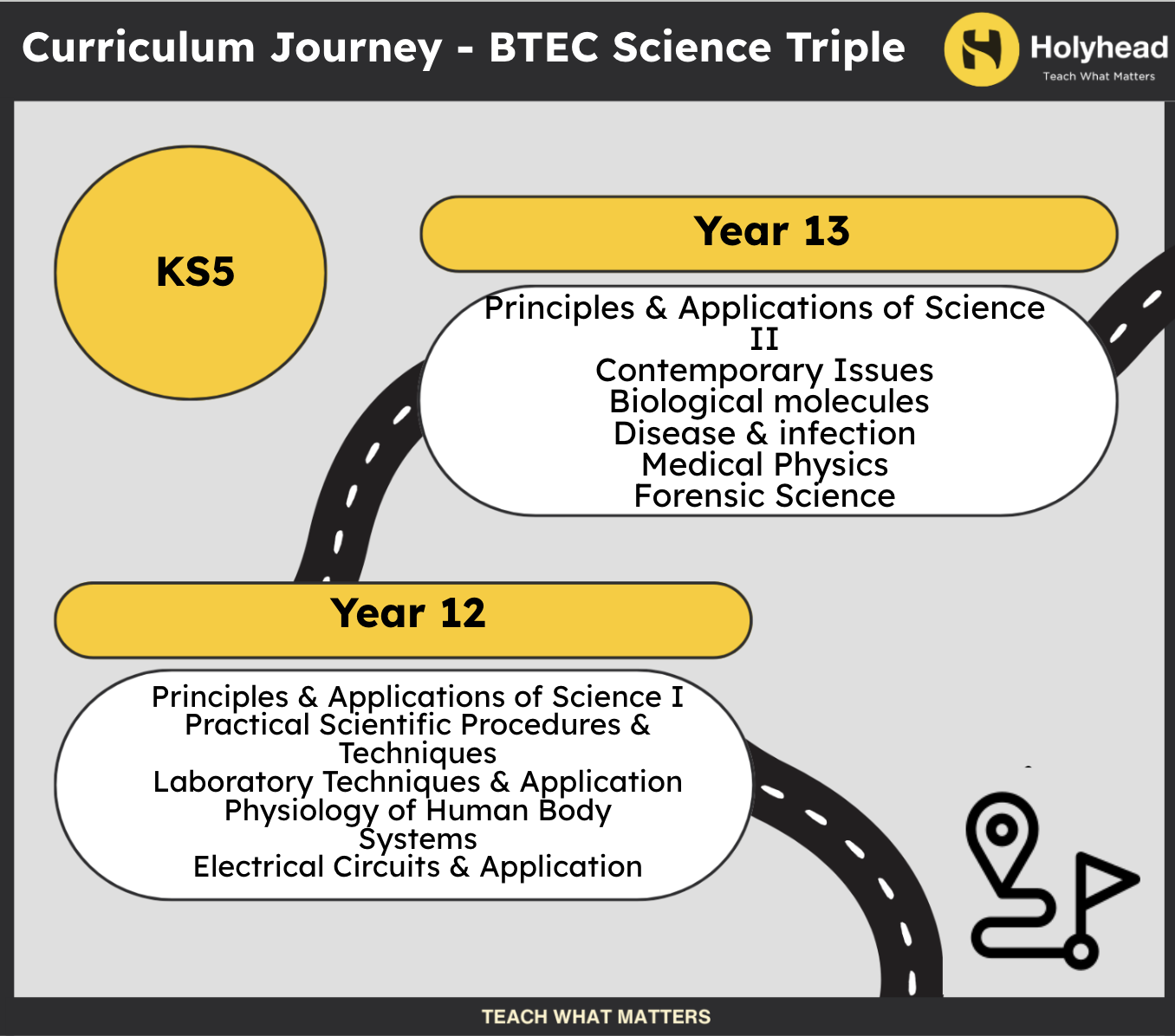Level 3 Applied Science
Subject Intent
The BTEC Level 3 Applied Science course has been selected for students who are interested in a career in the science sector and has been designed to develop the skills and knowledge that they will need to deal with the challenges whilst working or studying in this field. Students will develop professional and practical skills through carrying out real experiments and research, working with local employers who can provide a workplace setting or national research projects that use volunteers to gather data, as well as theoretical knowledge and understanding to underpin these skills.
Students studying BTEC Nationals in Applied Science at Level 3 will follow modules in Principles and Applications of Applied Science, Practical Scientific Procedures and Techniques, Science Investigational Skills, Contemporary Issues in Science and a choice of optional units. This course will not only develop scientific knowledge but will also practise transferable skills for higher education and personal development.
What are the key skills of a scientist?
This course will allow learners the opportunity to learn and understand the core principles and practical applications that underpin Applied Science. The qualification's synoptic focus will ensure that learning is coherent across all units. The learner will undertake a programme of assessment designed to measure their knowledge and understanding of applied science as well as its practical application.
Each unit within the qualification has an applied purpose which acts as a focus for the learning in the unit. The applied purpose demands authentic work-related learning in each of the units. It also requires learners to consider how the use and application of their learning affects themselves, other individuals, employers, society and the environment. The applied purpose will also enable learners to learn in such a way that they develop:
- Skills required for independent learning and development - Organisational skills, communication, presentation, leadership, resilience and initiative.
- A range of generic and transferable skills - Practical techniques, report writing, organisational skills, communication, teamwork & collaboration
- The ability to solve problems
- The skills of project-based research, development and presentation
- The ability to apply mathematical and ICT skills
- The ability to apply learning in vocational contexts




